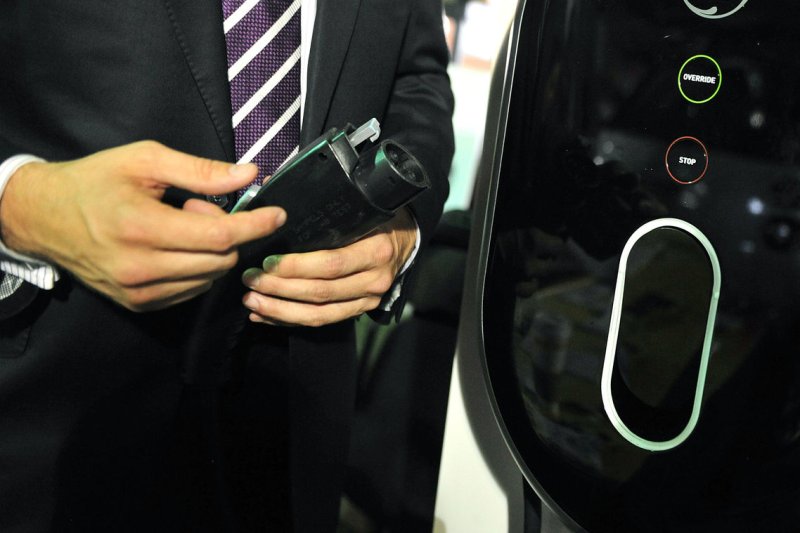With seven U.S. states proposing a highway corridor for charging stations, the federal government said many more charging points are needed to support expected growth. File photo by Kevin Dietsch/UPI. |
License Photo
Oct. 5 (UPI) -- The number of plug-in ports for electric vehicles would need to increase more than 130 percent to meet future growth, a U.S. Energy Department study found.
The U.S. Energy Department's National Renewable Energy Laboratory estimates there are 16,000 charging stations for plug-in electric vehicles nation-wide, with 43,000 actual plugs available as of June. That number supports the more than 500,000 plug-ins on the road in the United States, which accounts for about a quarter of the global market.
NREL examined market growth scenarios where that number increased to 15 million to quantify what's necessary to support emerging trends.
"In a plug-in vehicle market with 15 million vehicles, the total number of non-residential charging outlets, or plugs, needed to meet urban and rural demand ranges from around 100,000 to more than 1.2 million," the report read.
The federal study followed the signing of a memorandum of understanding by the governors of Colorado, Idaho, Montana, Nevada, New Mexico, Utah and Wyoming that envisions an Intermountain West Electric Vehicle Corridor "that will make it possible to seamlessly drive an electric vehicle" across the major transportation corridors of the parties involved.
"Through this collaboration, we will drive economic growth and promote our outdoor recreation opportunities across our states," Colorado Gov. John Hickenlooper, who hosted the signing, said in a statement.
Among other things, the agreement aims to address "range anxiety" by coordinating electric charging station locations so there's less overlap but enough frequency to keep vehicles charged. A report from The University of Michigan's Transportation Research Institute, co-authored by Brandon Schoettle and Michael Sivak, found both battery-powered and plug-in hybrids are at the point where they're capable of meeting the daily travel needs of most U.S. drivers. Recent improvements in range and charging times, their report read, has led to wider acceptance and reduced "range anxiety" already.
More than 90 percent of all transportation-related energy consumption in the United States comes from petroleum-based products, with electric vehicles accounting only for a small fraction of total consumer use.
The federal study found most plugs would be underutilized at first but improve as the electric vehicle market expands.















